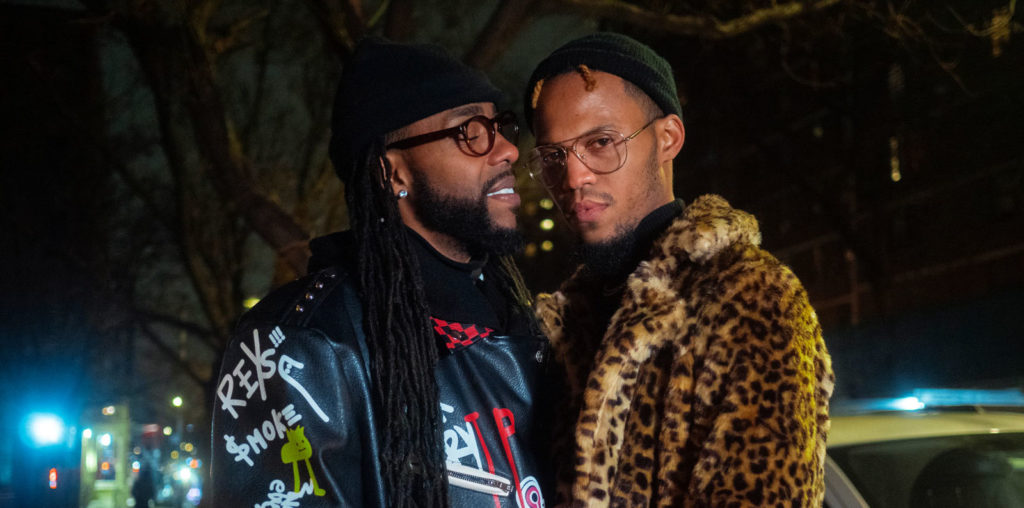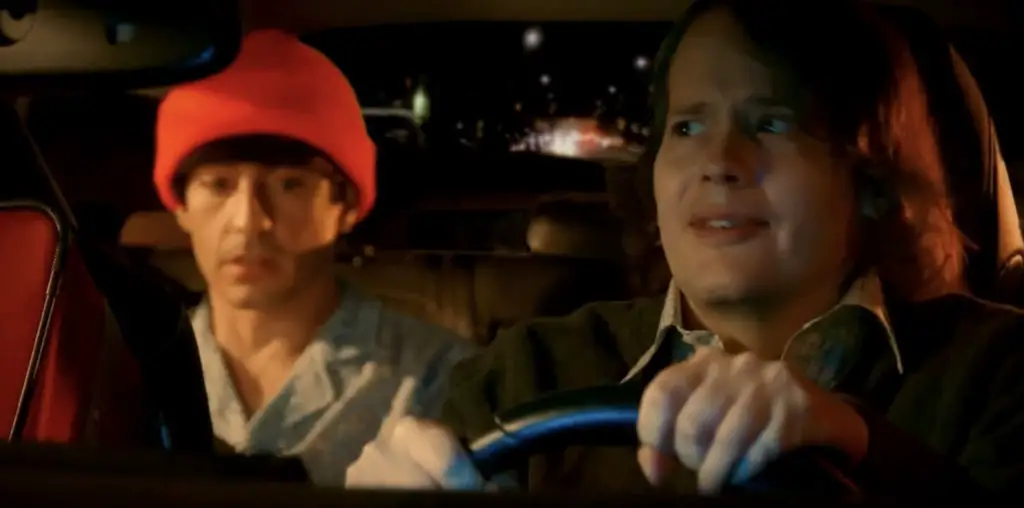
“Windtalkers” arrives with the same “based on a true story” tag that has sunk many films that came before it and usually leaves the audience wishing that it wasn’t based on a true story. Can you imagine “Windtalkers” director John Woo preparing for a shot while some aging historian wags his finger shouting, “It wasn’t like that.” I don’t think purists or action movie fans have to worry because “Windtalkers” cheerfully abandons reality after the opening credits.
The movie does teach us some things, as we learn about the Navajo code, a secret code taken out of words spoken in the Navajo language which can only be translated by Navajos themselves, although the Japanese seemed to have done a pretty good job of breaking all of the other codes. There’s kind of a paradox in the film whereas the Japanese want to catch the Navajos and force them to reveal the details of the code while the Americans, the “good guys,” would assassinate the Navajos before letting this happen.
This all happens after John Woo shows off his trademark visual flare in an opening scene where a mystical butterfly hovers over a plain looking stream that eventually turns bloody as the body of a dead soldier is revealed to us. Then we meet Nicolas Cage’s character Joe Enders, a tortured marine sergeant whose raw courage in battle during his previous mission cost the lives of his entire platoon. Enders has dead eyes from the previous massacre and just like Martin Sheen in “Apocalypse Now,” he’s given a mission that he may not be emotionally equipped to handle. His orders: protect a Navajo private named Ben Yahzee(Adam Beach) and most of all, protect his code. If Yahzee gets taken hostage, kill him. We can understand why Enders is a little reluctant to get to know Yahzee, for many reasons.
The film then settles down into the give and take aspects of the battle scenes. I like how Woo and his crew always maintain contact with the main characters and give us some idea as to where they’re headed when the action gets really chaotic. The battle scenes in “Windtalkers” are so good that they reminded me of “The Thin Red Line” where you could really feel the point of view of the soldiers as they try to take a location or move ten yards in one direction. There’s danger everywhere.
“Windtalkers” is more than passable summer entertainment and I think if they were still making war westerns today, it would feel right at home. I like the familiarity with the stock characters we’ve seen from a hundred war movies before and there’s a pulsing, nervous energy that beats through all of the action. I’m not sure that John Woo knows how to make a bad looking film.
But this is not a movie about characters because I don’t think John Woo is very good at showing emotion in his films which is a quality that usually lifts war films out of the pack. Woo does show drama in all of his films and I think we give him credit for merely attempting to do so, but the scenes of soldiers crying over each other and writing to their wives and girlfriends are no more interesting in “Windtalkers” than the scenes of irony and pathos in Woo films like “A Better Tomorrow” and “Face/Off.”
I didn’t find any of the performances interesting either. I know Nicolas Cage has been trying a new acting style with his wide-eyed look, never blinking, and I know that he’s trying to project the detachment that his character must feel upon the thought of having to kill his Navajo guide, but it just doesn’t work. I’m not saying that Cage has to always be crazy in his films(though that may have been a good idea here)but he needed to show us why he was the actor to play this role and not a hundred other actors with whom we’re more familiar with in this genre. Look at the emotional discoveries Mel Gibson made in We Were Soldiers.
Then there’s Adam Beach as Yahzee, the Navajo private. He’s a capable actor but too young and too naive looking for the part. I think this is a role that required a tough Native American actor like Wes Studi who would project more cynicism against Cage and the war in general. As he is, Yahzee doesn’t look like he’s ever fired a gun in his life. Beach is also hamstrung by a crudely handled racism subplot where he and his comrades are subjected to racial jibes at the hands of a redneck corporal, played by Noah Emmerich. The rest of the characters are so anonymous that we’re frankly indifferent when they die, just grateful that they serve that purpose. This is the kind of film where you think you can predict everything that’s going to happen upon the first shot and you spend the rest of the film praying that you’re wrong. But it’s fun getting there.
I wonder if people will be turned off by the racist corporal in a big way or just see him as a typical war movie character. It used to be in a war movie that the filmmaker’s whose POV was being shown had a responsibility to be fair to the other side. If “Windtalkers” were a white man’s story I do not think we would’ve seen the Navajos treated as savages, so why do we need to see the corporal anyway? There was a scene in the great Vietnam film “84 Charlie Mopic” where a southern grunt explained his feelings about his black commander. He explained that what happened back in America was back in America and that when they were on the battlefield he would die for the man he may have been bred to hate. I think “Windtalkers” could’ve used a scene just like that.

